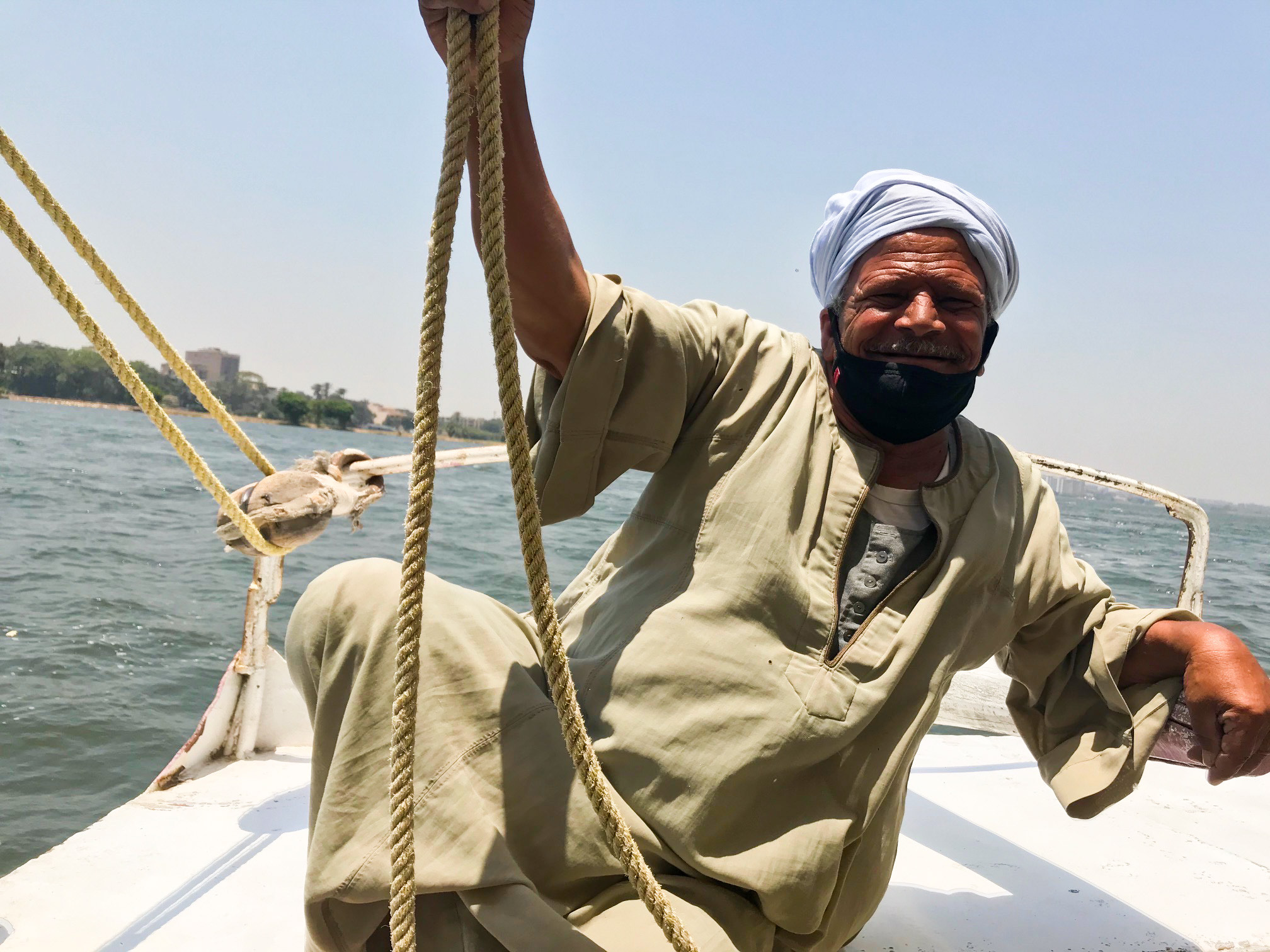A few days ago, while I was walking along the Nile Corniche, a cheerful-looking old man dressed in a galabeya approached me. He asked if I was interested in a felucca ride on the Nile. Incidentally, that had been just what I was looking for. Hopping onto the boat, I did not expect to have the fruitful conversation we ended up having as we sailed along the river. The story he told me started six decades ago, in Beni Suef, a governorate nestled in the Nile Valley. There and then was a man who had three children named Antar, Abla, and Shayboon, inspired by the 1945 popular classic Egyptian film ‘Antar and Abla’. The man’s profession consisted of spending his days on a boat in the Nile, transporting goods from Minya to industrialized Cairo, and back. As his baby boys, Antar and Shayboon, grew into young men, they became his companions, sailing their days through the river in the shadow of their father. Fast forward about 53 years to the Maadi Corniche in Cairo, and one can find 63-year-old Rayis, or captain, Shayboon sailing one of the boats within the…



